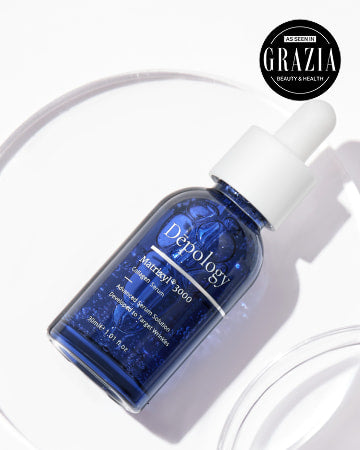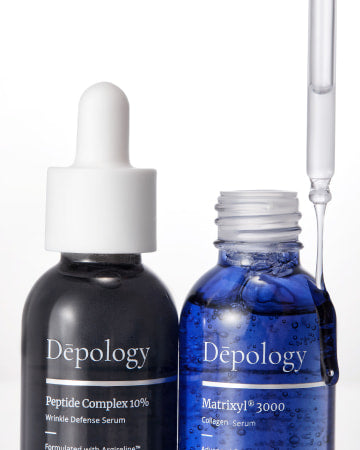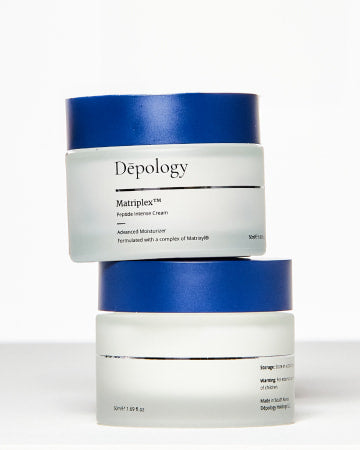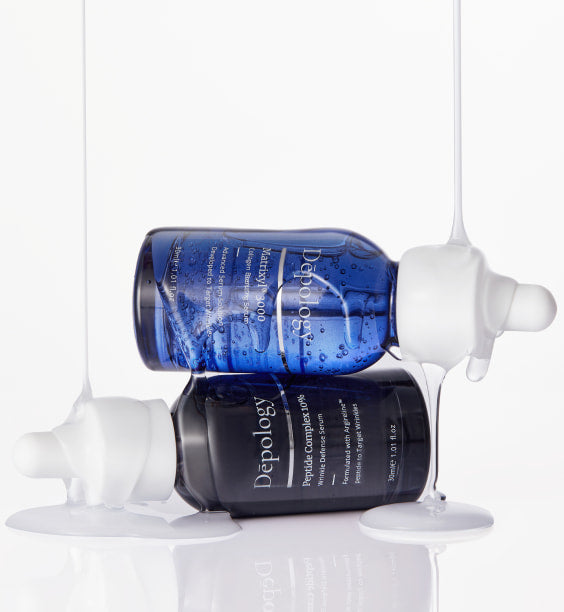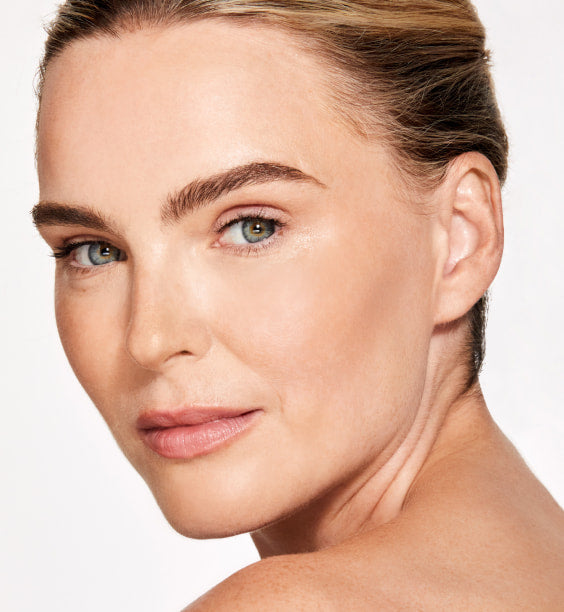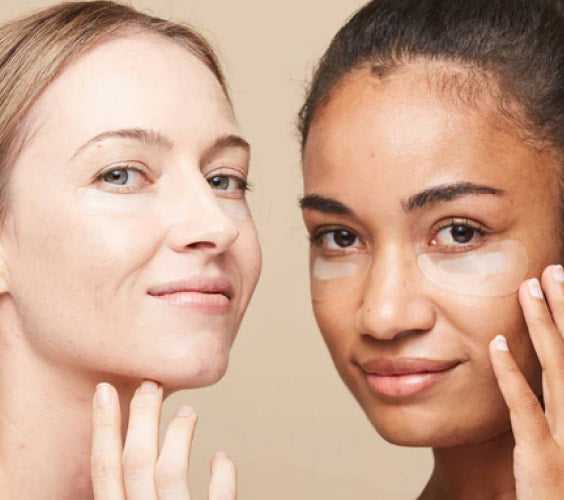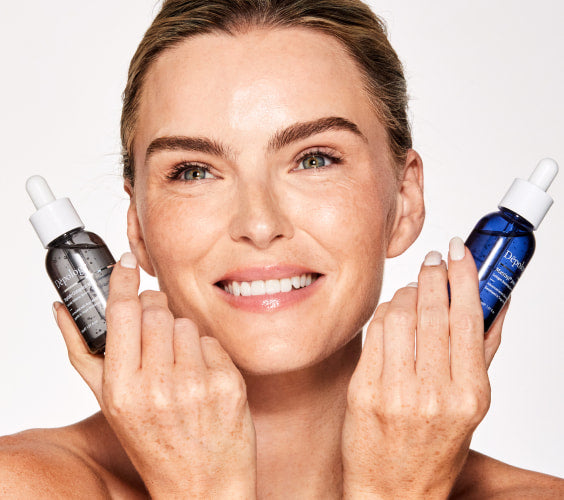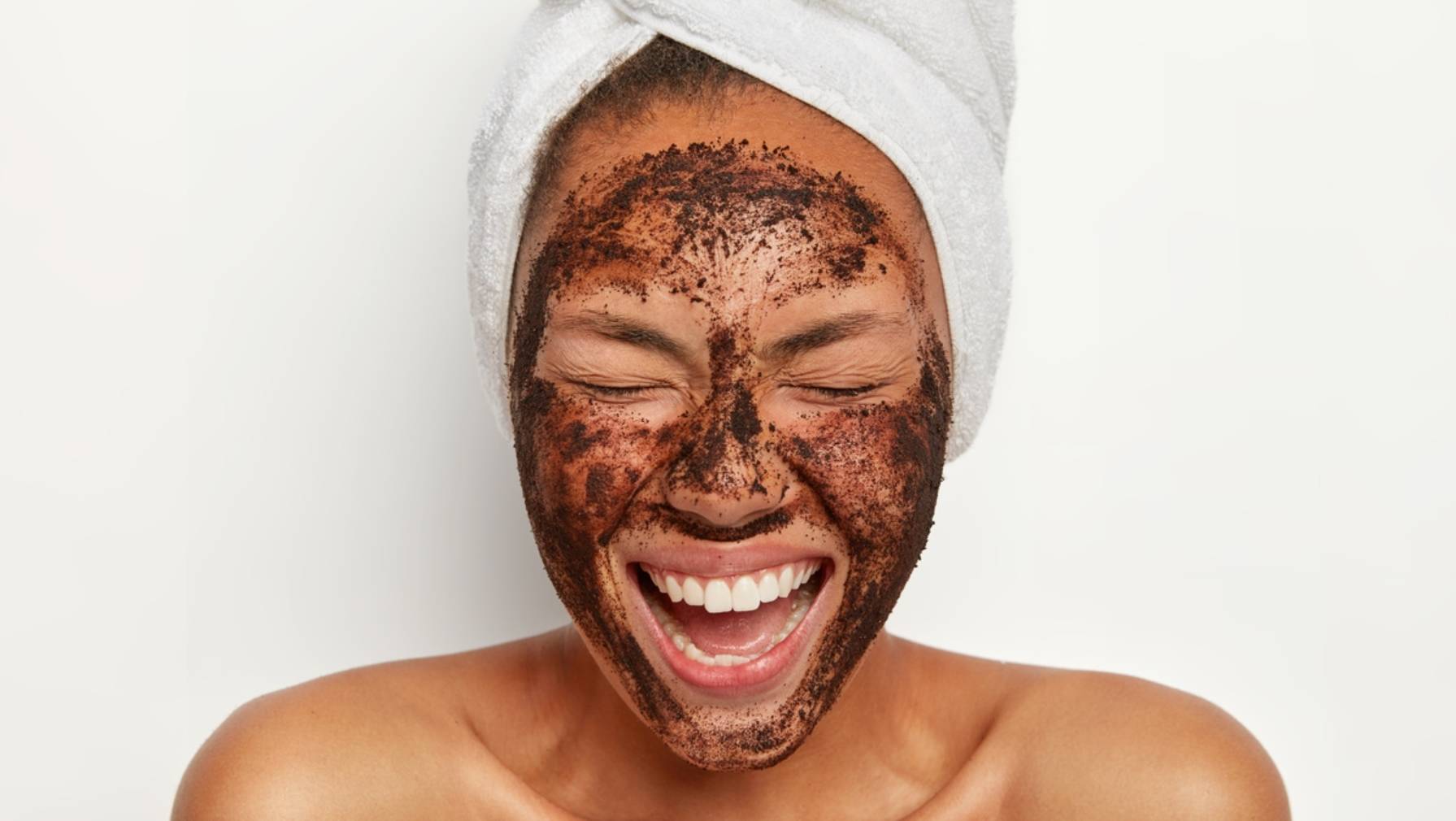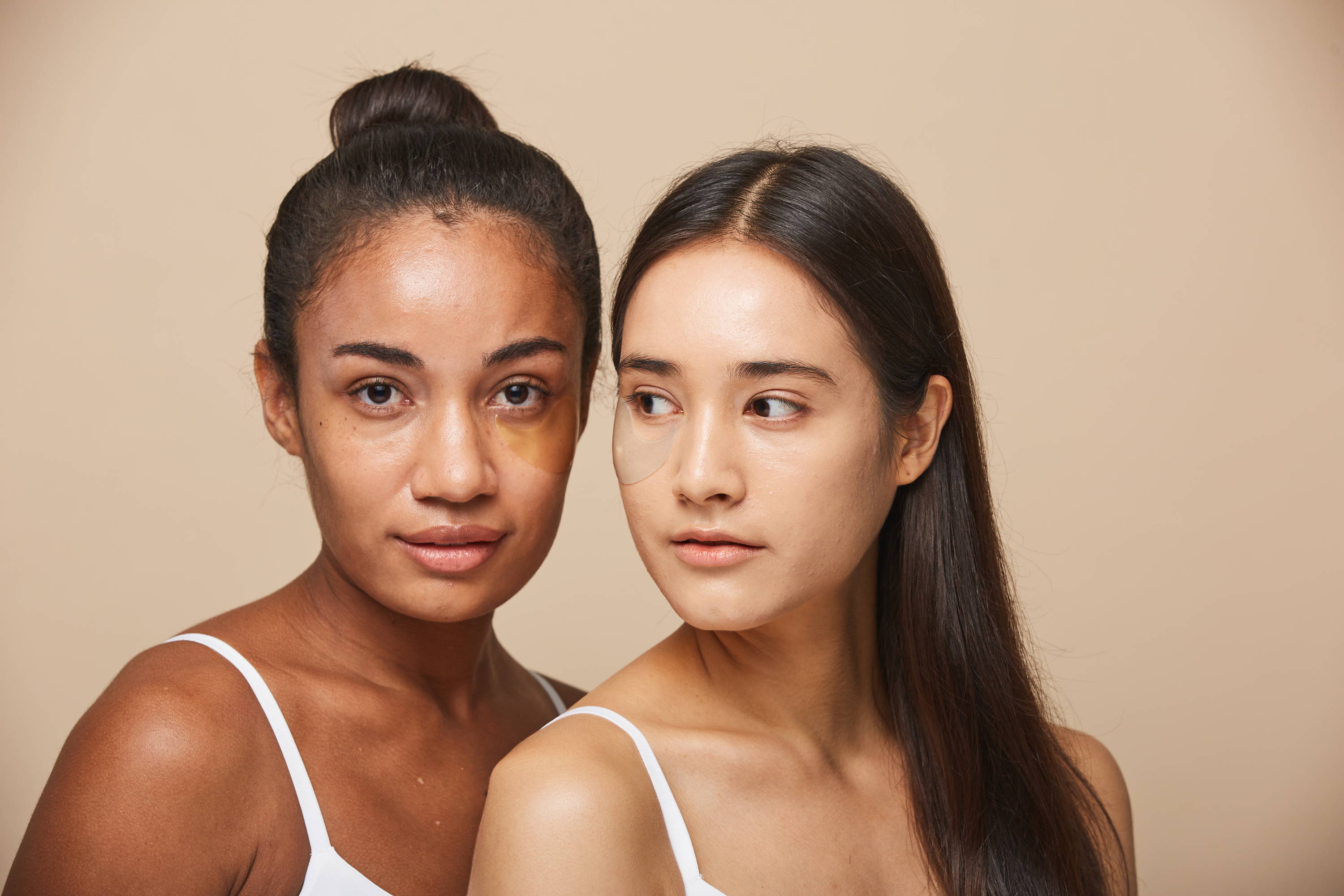
How to Reduce Melanin in the Skin?: Do I Need To?
Have you ever wondered why some people have brighter or darker skin? In general, humans have about the same number of melanocytes in the body, which are specialized cells located in the epidermis, or the outermost layer of the skin. These cells produce a pigment called melanin, which is what creates each person’s skin color. Some people’s cells produce more melanin than others, which creates darker skin the more melanin is produced.
This is generally a natural process for the body and goes back to genetics in most cases, although some people may experience pigmentation concerns, leaving them wondering what options, if any, they have to treat their symptoms. Is having too much melanin normal and what kind of treatments are available?
What is the primary function of melanin?
While melanin serves several important functions, its primary function is considered to be protection against the harmful effects of ultraviolet (UV) radiation from the sun. The pigment melanin is found in the skin, hair, eyes, and certain other tissues in the body.
Other common functions of melanin include:
Skin Color Determination
The amount and type of melanin in the skin determine an individual's skin color. People with more melanin tend to have darker skin, which provides greater protection against UV damage compared to those with lighter skin.
Protection for the Eyes
In the eyes, melanin is found in the iris and helps to regulate the amount of light that enters the eye. As melanin protects against UV radiation, it reduces the risk of eye diseases and damage.
Hair Color Determination
Melanin is not only responsible for determining the color of the skin but also the hair. The type and amount of melanin in hair follicles determine whether the hair is black, brown, blonde, or red.
Inner Ear Function
Melanin is also present in the inner ear, where it plays a role in protecting delicate sensory cells from damage due to sound and other environmental factors.
While melanin's primary function is protection for many areas of the body and skin, it can also have secondary roles, such as influencing aspects of sexual attraction and providing antioxidant properties. Additionally, differences in melanin production contribute to the wide range of human skin, hair, and eye colors observed across different populations.
Does melanin protect you from the sun?
Yes, melanin provides essential protection against the harmful effects of the sun. Melanin absorbs UV radiation and dissipates it as heat, helping to prevent damage to DNA and other cellular structures. This is crucial in reducing the risk of skin cancer and other UV-related disorders, acting as a natural sunscreen for the skin.
Here's a summary of how melanin protects you from sun damage:
UV Absorption
Melanin molecules in the skin start to absorb UV radiation from the sun. UV radiation consists of UVA and UVB rays, both of which can be damaging to skin cells and DNA.
Heat Dissipation
Once melanin absorbs UV radiation, it converts the energy into heat, which is then dispersed harmlessly. This process helps to prevent UV radiation from penetrating deeper into the skin.
Reduced Risk of Skin Cancer
Because melanin helps to prevent UV-induced DNA damage, it reduces the risk of developing skin cancer, including melanoma, squamous cell carcinoma, and basal cell carcinoma.
While melanin provides some level of natural protection against the sun, it is not an absolute barrier or replacement for alternative treatments. Prolonged and excessive sun exposure can still lead to skin damage and an increased risk of skin cancer, even in individuals with darker skin.
Everyone, regardless of their skin type, should practice sun safety measures such as wearing sunscreen, protective clothing, and sunglasses. They should also seek shade during peak sun hours to minimize the risk of sun-related skin damage.
Which foods reduce and increase melanin?
Foods do not directly reduce or increase melanin production in the body. Melanin is primarily determined by genetics, and its production is regulated by the activity of melanocytes (specialized skin cells) in response to various factors, including exposure to ultraviolet (UV) radiation from the sun.
However, certain nutrients and dietary components can indirectly influence skin health and melanin production, which can affect skin pigmentation to some extent. Here are some examples of foods that may promote skin health and melanin production:
Vitamin D
Adequate vitamin D is important for overall skin health. Your skin produces vitamin D when exposed to sunlight, and this vitamin plays a role in skin cell growth and repair.
Antioxidants
Antioxidant-rich foods, such as fruits and vegetables, can help protect skin cells from damage caused by free radicals and UV radiation. This protection can indirectly support melanin production.
Omega-3 Fatty Acids
Foods high in omega-3 fatty acids, like fatty fish (i.e. salmon, mackerel) and flaxseeds, may help maintain skin health and potentially support melanin production.
Amino Acids
Amino acids are the building blocks of proteins, including melanin. Eating a balanced diet that includes adequate protein can ensure your body has the necessary components for melanin synthesis.
Copper
Copper is a trace mineral involved in melanin production. Foods such as shellfish, nuts, seeds, and whole grains contain copper.
Alternatively, foods that may adversely affect skin health include:
Excessive Sugar and Processed Foods
High sugar intake and a diet heavy in processed foods may contribute to skin issues, including inflammation, which can affect skin health.
Alcohol
Excessive alcohol consumption can lead to dehydration and may impact the appearance of the skin.
Caffeine
Caffeine, when consumed in excess, can have a dehydrating effect, potentially affecting the skin's appearance similar to alcohol consumption.
Remember that maintaining a healthy and balanced diet, along with practicing good skincare habits and sun protection, can all contribute to overall skin health and appearance. However, the effects of diet on melanin production are limited, and genetics and sun exposure remain the primary factors influencing skin pigmentation.
How to reduce melanin in the eyes?
Melanin in the eyes is a natural pigment that provides protection against the harmful effects of ultraviolet (UV) radiation and helps determine eye color. Unlike skin, where melanin can be influenced by various factors, the amount of melanin in the eyes is primarily determined by genetics and does not easily change. There are no safe and effective ways to reduce melanin in the eyes, and attempting to do so could potentially be harmful.
The color of your eyes is determined by the amount and type of melanin in the iris, the colored part of the eye. If you are concerned about the appearance of your eyes or experience changes in eye color, you should consult with an eye care specialist or an ophthalmologist. Changes in eye color could be indicative of underlying eye conditions, and it's crucial to rule out any potential health issues before they may worsen.
There are no practical or safe methods to reduce melanin in the eyes, and attempting to do so is not recommended. Embrace the natural color of your eyes, and if you have any concerns about your eye health or changes in eye color, it’s best to seek professional advice for peace of mind.
How to reduce melanin naturally?
The amount and type of melanin in your skin, hair, and eyes are determined by your genetic makeup and are not easily changed. While there are no safe and practical ways to reduce melanin in your body, you can take steps to maintain healthy skin and manage skin conditions related to melanin, such as hyperpigmentation or uneven skin tone. Here are some general tips:
Sun Protection
UV radiation from the sun stimulates melanin production, so using sunscreen, wearing protective clothing, and seeking shade can help prevent further melanin production and reduce the risk of sun-related skin damage.
Consistent Skin Care Routines
Establish a regular skincare routine that includes cleansing, moisturizing, and exfoliating. Gentle exfoliation can help improve skin texture and reduce the appearance of some types of hyperpigmentation. Exfoliating one to two times per week is generally the recommended amt as to avoid over-exfoliation.
Topical Products
Some skincare products contain ingredients like vitamin C, retinoids, niacinamide, and alpha hydroxy acids (AHAs) that can help improve skin tone and reduce the appearance of hyperpigmentation. Other beneficial ingredients for skin brightening include aloe vera gels, green tea, and hydroquinone.
Engage in a Healthy Diet
Eating a balanced diet rich in antioxidants can help protect your skin from oxidative damage. Antioxidants are found in fruits, vegetables, and foods rich in vitamins C and E.
Maintain Proper Hydration
Proper hydration is necessary for healthy skin. Drinking enough water can help maintain skin health, firmness, and elasticity.
Avoid Irritants
Avoid using harsh skincare products or practices that may irritate your skin, as irritation can lead to increased melanin production. Be gentle with your skin and always patch test first if you’re unsure of how a formula will interact with your skin type.
Consult a Dermatologist
Skincare professionals can assist you with specific concerns about your skin or pigmentation issues. They can provide personalized advice, recommend treatments, prescribe stronger medications than what’s available over the counter, and, if necessary, perform procedures such as chemical peels or laser therapy to address hyperpigmentation.
Laser Treatments
If you choose to undergo laser therapy to treat your melanin or skincare concerns, there are a few different methods that you can choose from. Depending on your issue or condition, your skincare specialist may recommend you a type of therapy to pursue.
The most common include ablative lasers, which remove the outer layers of the skin during treatment. Nonablative lasers, naturally, are gentler and use pulses of light energy to remove discolored spots while Q-switched ruby lasers (QSRL) dissolve the skin with their light energy pulses.
Should you reduce melanin during pregnancy?
Attempting to reduce melanin during pregnancy is not recommended and can be potentially harmful to both the mother and the developing fetus. Attempting to alter melanin production during pregnancy can disrupt the natural processes of melanin in the body and have unintended consequences.
During pregnancy, hormonal changes can sometimes lead to changes in skin pigmentation, resulting in conditions such as melasma (also known as "the mask of pregnancy") or darkening of the areolas and linea nigra (a dark line that can appear on the abdomen). These changes are generally temporary and tend to improve after pregnancy.
If you are concerned about changes in skin pigmentation during pregnancy or have specific skin issues, consult with a healthcare provider, preferably a dermatologist or obstetrician, who can provide guidance and recommend safe and appropriate skincare products or treatments that are suitable for pregnant women.
Conclusion
Remember that melanin is a crucial part of your body's natural defense against UV radiation, and it also plays a role in determining your skin, hair, and eye color. Embrace your natural skin tone and focus on maintaining healthy skin rather than trying to reduce melanin production, which is not a practical or recommended goal to attain.


